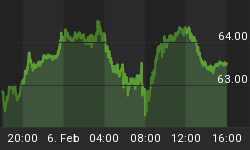On Friday, Sentinel filed for Chapter 11 bankruptcy.
Sentinel Management Group Inc., a U.S. futures commission merchant whose decision to freeze client accounts on Tuesday helped roil global financial markets, filed for Chapter 11 bankruptcy protection late on Friday.
The cash management company, which managed about $1.6 billion of assets, said its board decided it was in "the best interests of the corporation, its creditors and other interested parties that a voluntary petition be filed ... in an effort to restructure the indebtedness of the corporation," according to a filing in the bankruptcy court for the Northern District of Illinois.
Sentinel Recap
Tuesday August 14 2007
Excuses at Sentinel Don't Fly
Sentinel Management Group on Tuesday froze assets in a $1.5 billion fund, saying too many investors are trying to withdraw their money. Sentinel Management, which boasts on its website that no client has ever lost money in its fund, makes money mainly by betting on overnight interest rates outpacing yields on short-term Treasury bonds.
Mish August 14th Comment: If you're looking for the source of the problem here it is: "We have never experienced a situation quite like this one. Liquidity has dried up all over the Street." What happened is that Sentinel thought that just because they have not seen something yet, that it could not happen. This is in essence the same thing that happened to the models at Moody's, Fitch, and the S&P, and various quant models that I talked about in Genius Fails Again.
Wednesday, August 15, 2007
Duration Mismatch at Sentinel
It turns out that Sentinel was chasing yield to the extreme. One of its short term portfolios actually had a duration of over 30 years. Following were my comments on August 15 expressed in the above link.
I cannot find the Investment Objectives for Sentinel's Prime Portfolio but I am quite sure that a weighted average of 30+ years does not provide much in the way of either safety or liquidity. To have a weighted average of that duration, it almost seems that Sentinel was banking on clients practically never wanting their money back.
Furthermore it is clear that the FAQ statement "Sentinel invests client cash mostly in the overnight market" is a gross distortion of reality.
What Sentinel investors are sadly finding out is corporate bonds make very poor cash substitutes. And the longer Sentinel waits to liquidate the worse things are likely to get. Sentinel is not doing its clients any favors by halting redemptions especially if "it's a breach of contract" as Jeff Barclay, a lawyer with Chicago-based Schuyler, Roche & Zwirner thinks.
I suspect quite a few "cash management" firms are finding out the same thing that Sentinel is: There is simply no good substitute for cash in a liquidity crisis.
Sentinel was clearly a ticking time bomb for many years. Their duration mismatch did not happen overnight. But that mismatch did not matter until it did. When it did matter it was far too late for anyone to do anything about it. Sentinel froze assets then went bankrupt in a matter of days. Poof, just like that, with no time to react. I do not like to lecture but I am going to do it anyway. Please read this paragraph over and over and over until you understand the broad implications: There are duration mismatches all over the place... in mortgages as well as investments, and especially for those people in 401Ks hoping to retire in 1-5 years. What happens if we have another crash like we had in 2000?
There are going to be ripple effects from this, perhaps lots of them. For starters, anyone that had cash parked at Sentinel can now kiss that cash goodbye. Small to medium size hedge funds with money parked at Sentinel are now likely to be facing margin calls they have no way to meet.
Worse yet, this is just the beginning of disasters like these. When total disaster strikes (and it will), the battle cry will undoubtedly be "No one could possibly have seen this coming. It's too late to sell now."















